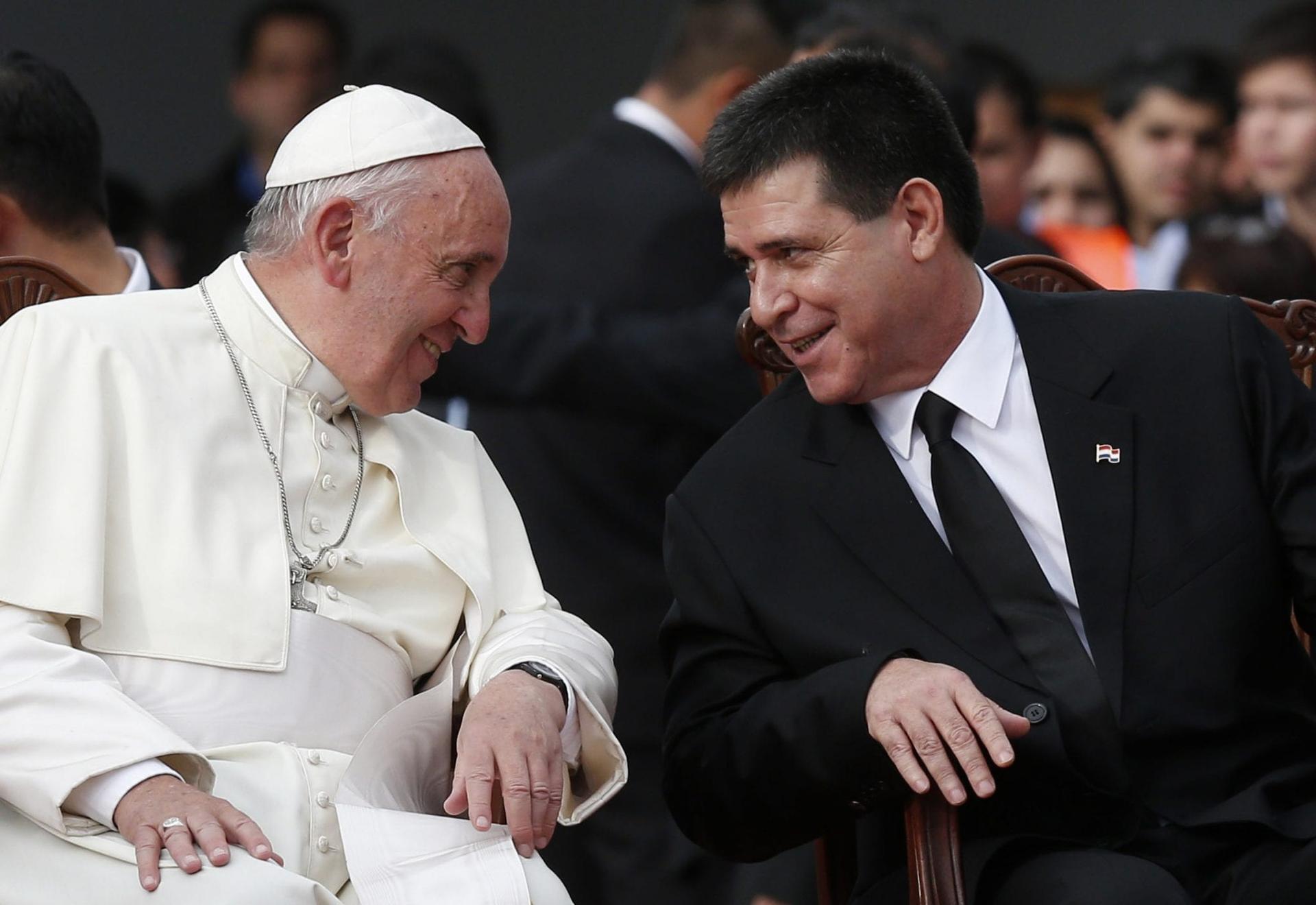ASUNCION, Paraguay — Illustrating Pope Francis’s long-held conviction that the Gospel is received first at the margins of society, it turns out that three countries who responded to his November 6 request to set prisoners free are among the world’s poorest.
What is more, one of them is officially Marxist, one majority Muslim, while the third is a land-locked Latin-American nation where more people speak the indigenous Indian language than Spanish.
“In a special way, I submit to the consideration of the competent civilian authorities in every country the opportunity to make, in this Holy Year of Mercy, an act of clemency towards those prisoners who will be considered eligible to benefit from this measure,” Pope Francis said at the Jubilee Mass for more than 1,000 prisoners in Rome earlier this month.
The plea was followed by letters from Francis to the world’s political leaders.
While there is little to suggest that the world’s largest Catholic countries — such as Brazil, Mexico, Poland and France — responded to Francis’s Jubilee of Mercy plea, it was heard and acted on in Cuba, Pakistan and Paraguay.
Within three hours of receiving Pope Francis’s letter, Paraguay’s president, Horacio Cartes, responded favorably, promising to release detainees. Last Saturday 16 prisoners were released, of whom ten were women, from three different prisons. All of them “left with a job offer,” Cartes’s press director, Mariano Mercado, told Crux.
Announcing the indult alongside the papal nuncio, Archbishop Eliseo Antonio Ariotti, President Cartes said he had responded “at once,” given the “seriousness” of the pope’s request.
Paraguay’s prisons house just over 13,000 inmates, more than twice their capacity, but the government is investing some 80m dollars in upgrading the facilities.
Meanwhile, more than 60 prisoners in Faisalabad, Pakistan, have been released at the initiative of the government’s only Christian minister, Catholic senator Kamran Michael, who is Federal Minister for Human Rights.
Inspired by Pope Francis’s call, Michael acquiesced to a suggestion by the Bishop of Faisalabad, Joseph Arshad. According to the minister, the move reflects the message “announced by Pope Francis in this year named as the Year of Mercy, to assign the fundamental right to freedom of these prisoners.”
Father Nisar Barkat, director of the Faisalabad diocesan commission for interreligious dialogue and ecumenism, told UCA News that “63 prisoners, mostly Muslims, have been released from Central Jail Faisalabad, and eight more who have completed their sentences will be set free after the ministry pays their bail.”
“Prisoners from the central jail in Lahore will also be released this year while those in the southern Sindh province will be freed in coming months,” Barkat added.
In Pakistan 88 detention facilities house a total prison population of over 80,000, of whom 70 percent are awaiting trial. The prison system was built to house close to half that number.
The Cuban government of Raúl Castro meanwhile said on November 15 it would pardon 787 common prisoners following Pope Francis’s request.
According to an announcement in the official newspaper Granma, the prisoners had been selected according to the crimes committed, their behavior while serving time, and the time remaining on their sentences.
Women, the young and the sick were more likely to make it onto the list “for humanitarian reasons,” which excluded those convicted for homicide, rape, corruption of minors, drug trafficking or similar crimes.
It is not yet clear when the prisoners will be released.
Cuba’s communist government has a long track record of releasing vast numbers of prisoners at the request of the Church, especially when popes come to the island.
At the time of St. John Paul II’s visit in 1998, the Church negotiated the release of more than 100 prisoners. A further 2,900 were set free during the visit of Benedict XVI in 2012, and a further 3,522 prior to Pope Francis’s visit in September 2015.















